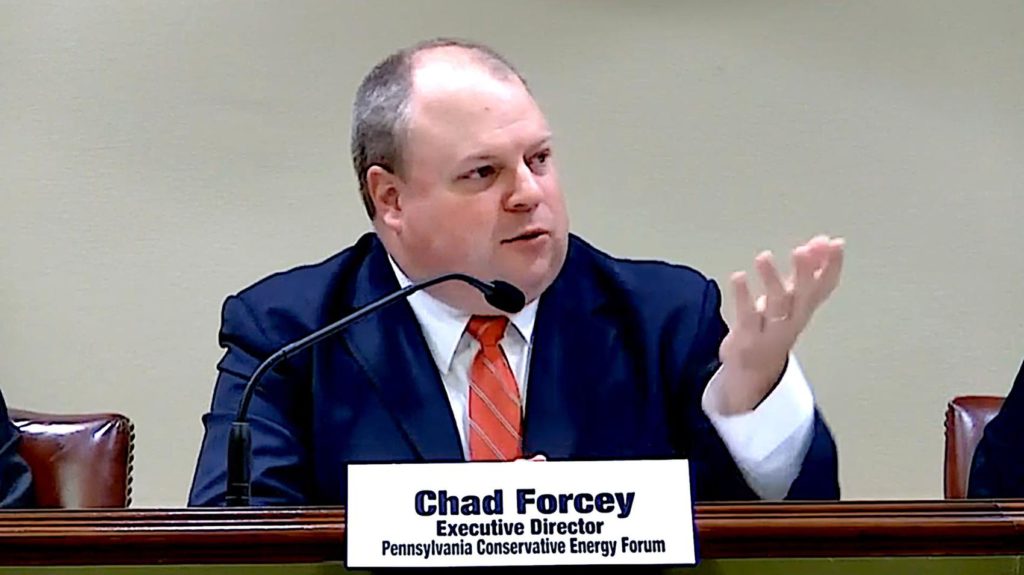BY STEVE BITTENBENDER
Advocates for renewable energy sources met with Pennsylvania Senate Republicans this week to hold a discussion on developing conservative policies toward the emerging industry.
Some speakers at the Senate Majority Policy Committee forum noted that renewable energy isn’t typically a platform issue for the GOP, but Chad Forcey, executive director of the Pennsylvania Conservative Energy Forum, said it’s an issue that appeals to younger and suburban voters. Those are two blocs with which the party needs to make inroads.
“Let’s take ownership of these new technologies and bring the job creators from these industries into our fold,” he said.
The hearing comes just weeks after Democratic Gov. Tom Wolf announced his intention for the state to join other mid-Atlantic and New England states in the Regional Greenhouse Gas Initiative (RGGI). Both Republican lawmakers and panelists at Tuesday’s forum expressed some reservations about the move to join the cap-and-trade program.
Forcey said his group wants to see the state take some of the revenue it would generate from the program and earmark it for “actual energy projects,” especially those tied to Pennsylvania farms. It also should prevent consumer energy prices from rising.
State Sen. Dave Argall, the committee chairman, said after the meeting that Wolf should not go forward on RGGI without input from lawmakers and other key stakeholders.
“If we can amend the proposal to make it more acceptable to Pennsylvania’s unique energy needs, this could present a successful bipartisan agreement which will benefit all of us, as well as our grandchildren and our grandchildren’s grandchildren, in the future,” Argall, R-Berks, said in a statement. “This is a critical issue and we have to review all the details so that we make the right decisions.”
Among the renewable energy projects discussed were plans for an offshore wind farm in Lake Erie and Senate Bill 705, which would establish standards for community solar energy projects.
During the hearing, lawmakers were told that investments in solar energy could benefit the state. If the state gets to 5 percent solar energy production by 2025, it would reduce the cost of peak prices during the summer months, said Brent Alderfer, founder and CEO of Community Energy.
Also, getting to 5 percent would require about 30,000 acres, less than 1 percent of the state’s farmland. However, as farmers face challenges, they can lease part of their land for solar generation and get substantially more revenue a year than they would from crops, up to five times the price.
“Farms that are going out of business can look to solar on part of their farm to preserve the economics,” Alderfer said.
